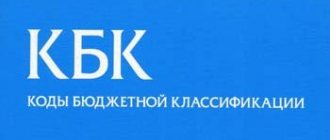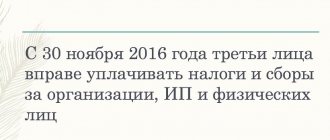Tax Code >> Chapter 23
Article 207 Taxpayers
Article 208 Income from sources in the Russian Federation and income from sources outside the Russian Federation
Article 209 Object of taxation
Article 210 Tax base
Article 211 Features of determining the tax base when receiving income in kind
Article 212 Features of determining the tax base when receiving income in the form of material benefits
Article 213 Features of determining the tax base for insurance contracts
Article 213.1 Features of determining the tax base for non-state pension agreements and compulsory pension insurance agreements concluded with non-state pension funds
Article 214 Peculiarities of paying personal income tax in relation to income from equity participation in an organization
Article 214.1 Peculiarities of determining the tax base, calculation and payment of income tax on transactions with securities and on transactions with financial instruments of futures transactions
Article 214.2 Features of determining the tax base when receiving income in the form of interest received on deposits of individuals in banks located on the territory of the Russian Federation
Article 214.2.1 Features of determining the tax base when receiving income in the form of fees for the use of funds of members of a credit consumer cooperative (shareholders), interest for the use by an agricultural credit consumer cooperative of funds raised in the form of loans from members of an agricultural credit consumer cooperative or associated members of an agricultural credit consumer cooperative
Article 214.3 Peculiarities of determining the tax base for repo transactions, the object of which are securities
Article 214.4 Peculiarities of determining the tax base for securities lending transactions
Article 214.5 Peculiarities of determining the tax base for income received by participants of an investment partnership
Article 214.6 Peculiarities of calculation and payment of tax in relation to income on government securities, municipal securities, as well as equity securities issued by Russian organizations, paid to foreign organizations acting in the interests of third parties
Article 214.7 Peculiarities of determining the tax base for income in the form of winnings received in a bookmaker's office and totalizator
Article 214.8 Request for documents related to the calculation and payment of tax when paying income on government securities, municipal securities, as well as equity securities issued by Russian organizations, paid to foreign organizations acting in the interests of third parties
Article 214.9 Peculiarities of determining the tax base, accounting for losses, calculating and paying tax on transactions accounted for on an individual investment account
Article 215 Features of determining the income of certain categories of foreign citizens
Article 216 Tax period
Article 217 Income not subject to taxation (exempt from taxation)
Article 217.1 Features of exemption from taxation of income from the sale of real estate
Article 218 Standard tax deductions
Article 219 Social tax deductions
Article 219.1 Investment tax deductions
Article 220 Property tax deductions
Article 220.1 Tax deductions when carrying forward losses from transactions with securities and transactions with financial instruments of futures transactions
Article 220.2 Tax deductions when carrying forward losses from participation in an investment partnership
Article 221 Professional tax deductions
Article 222 Powers of legislative (representative) bodies of the constituent entities of the Russian Federation to establish social and property deductions
Article 223 Date of actual receipt of income
Article 224 Tax rates
Article 225 Procedure for calculating tax
Article 226 Peculiarities of tax calculation by tax agents. Procedure and deadlines for tax payment by tax agents
Article 226.1 Peculiarities of calculation and payment of tax by tax agents when carrying out transactions with securities, transactions with financial instruments of futures transactions, as well as when making payments on securities of Russian issuers
Article 227 Peculiarities of calculation of tax amounts by certain categories of individuals. The procedure and terms for payment of tax, the procedure and terms for payment of advance payments by specified persons
Article 227.1 Peculiarities of calculating the amount of tax and filing a tax return by certain categories of foreign citizens engaged in paid labor activities in the Russian Federation. Tax payment procedure
Article 228 Peculiarities of tax calculation in relation to certain types of income. Tax payment procedure
Article 229 Tax return
Article 230 Enforcement of the provisions of this chapter
Article 231 Procedure for collection and refund of tax
Article 231.1 Features of the refund of tax withheld by a tax agent from certain types of income
Article 232 Elimination of double taxation
Article 233 Repealed
Chapter 23 of the Tax Code of the Russian Federation Personal income tax
| Chapter 22 | Chapter 24 |
Comments on Chapter 23 of the Tax Code of the Russian Federation - Personal Income Tax
What is income tax?
Income tax is a fee paid by individuals and legal entities on total income minus calculations that have been documented. The amount of the fee is determined as a percentage.
The wording should be clarified separately: income tax in Russia (as well as in a number of other countries) is considered to be only fees from individuals. Income from organizations (legal entities) is subject to income tax. IQReview will consider both of these areas, with a primary focus on personal income tax.
What other taxes are there?
Listed above are taxes that almost everyone will face in one way or another at different times in their lives. But everything is not limited to them. For example, someone who regularly provides services for money may pay tax on professional income. If he registers as self-employed, he will have to pay not 13%, but 4–6% on the amounts received. True, this is available Federal Law No. 428-FZ of December 15, 2019 “On Amendments to the Federal Law “On Conducting an Experiment to Establish a Special Tax Regime “Professional Income Tax” in the federal city of Moscow, in the Moscow and Kaluga regions, as well as in the Republic of Tatarstan (Tatarstan)" only for residents of 23 regions.
In addition, there are payment options that are not called taxes, but the essence does not change much. For example, an inheritance is not subject to personal income tax, but a state fee must be paid.
Who is obliged to pay it?
Personal income tax is charged on:
- individuals who are residents of the Russian Federation (staying in the country for at least 183 calendar days over 12 months);
- individuals who are not residents of the Russian Federation (staying less than 183 calendar days per year), but receiving income in the country.
The following are required to independently notify the tax office about their income:
- Individual entrepreneurs.
- Citizens engaged in private practice (lawyers, notaries).
- Individuals who are residents of the Russian Federation and receive income outside of Russia.
- Individuals who received gifts from non-tax agents (a tax agent is a person who pays taxes not for himself, but for another taxpayer).
- Individuals who received income from the sale of property.
- Individuals who received income from which tax agents did not collect tax.
- Individuals who have won some property or money in games based on risk.
- Individuals receiving payments as heirs of authors (inventions, literary works, works of art, science).
- Individuals who receive property or money from other individuals as a gift.
Profit tax is required to be paid by:
- All types of legal entities provided for in Russia (LLC, OJSC, CJSC, and so on).
- Foreign legal entities operating in the Russian Federation through a representative office, or receiving profit in the Russian Federation in any other way.
- Foreign legal entities that are recognized as tax residents of the Russian Federation.
- Foreign legal entities that are actually managed from the Russian Federation, unless another option is provided for by an international tax treaty.
Personal income tax from advance
The Labor Code in Article 136 of the Labor Code of the Russian Federation establishes the payment of wages at least once every half month. The first part is known as an advance - salary for half the month worked. The second part is the rest of the salary for the second half. The interval between issues cannot be more than 15 days .
Employee income is subject to personal income tax. At first glance, it seems that income taxes need to be withheld twice a month. The first is from an advance payment, the second is from the remaining salary. But that's not true. There are two reasons.
Firstly, Letter of the Federal Tax Service No. BS-4-11/ [email protected] dated 05/26/14. It directly states: income tax is withheld from the full salary upon final payment once a month. That is, personal income tax is not paid on the advance .
Secondly, Letter of the Ministry of Finance No. 03-04-06/33737 dated July 10, 2014. The ministry shares the position of the tax authorities. Personal income tax can only be deducted from the full salary. Advance payments are not subject to income tax .
For example, an employee’s salary is 50,000 rubles. Advance - half the salary. As a result, he will be given 25,000 rubles in advance. From the second part, 6,500 rubles of tax will be withheld and 18,500 rubles will be handed over.
But there are exceptions to this rule:
- the advance was issued on the last day of the month - income tax is withheld and transferred the next day;
- the employee has a personal income tax debt - the amount must be withheld from the advance payment in favor of repaying the debt, while personal income tax is not charged on the advance itself;
- the employee was given income in kind or he received a benefit - this income is subject to personal income tax, which must be withheld from the next cash payment, even if it is an advance, and personal income tax is not charged on the advance itself.
Who is exempt from payments?
are exempt from taxes :
Tax return
- Organizations operating under special taxation systems.
- Organizations paying gambling fees.
- Organizations that participate in the Skolkovo Innovation Project.
What is taxed and what is not taxed?
By law, individuals are required to pay personal income tax on the following income:
- From wages.
- From renting out real estate.
- From any sources of income located in other countries.
- From winnings in games associated with risk (lotteries, drawings).
The following are not subject to personal income tax:
- State benefits, except for temporary disability payments.
- Pensions.
- Free living space provided.
- Allowances for utility bills.
- Cash payments for food or in-kind allowances.
- Compensation received for personal injury.
- Payments upon dismissal.
- Payments to family members in the event of the death of civil servants on duty.
- Funds that compensate for the performance of work tasks (business trips, relocation for duty).
- All compensation payments established by the legislation of the Russian Federation and local governments.
- Donor (for donating blood, breast milk).
- Alimony.
- Grants that are allocated to support science, education, culture and art. The donor of the grant can be either a Russian or foreign organization, which must be approved by the Government of the Russian Federation.
- Prizes for achievements in the field of science, education, culture, literature, art. The list of awards must be approved by the Government of the Russian Federation.
- All types of one-time material assistance (humanitarian assistance, payments to victims of natural disasters or terrorist attacks on Russian territory, payments to the poor, and so on).
- Funds from the sale of real estate that has been owned by the owner for more than 5 years.
- Funds and property that a citizen received by inheritance.
- Funds and property that a citizen received as a gift from a family member or close relative.
- Funds received from the sale of products that were grown on personal plots or farms (both live and processed). Farms are exempt from payments for 5 years starting from the year of registration.
- Funds received from the sale or as wages for collecting medicinal plants, berries, nuts, mushrooms or any other wild products. Only those incomes that are received from organizations that have a license for the industrial procurement of certain types of plants are exempt from personal income tax payments.
- Funds received by participants in family (tribal) communities of small peoples of the North. They are exempt from personal income tax only if they are engaged in traditional industries for their people.
- Funds received by hunters for the delivery of harvested furs, fur, leather, meat - if the hunt was carried out under a license.
- Individual entrepreneurs who pay a single tax on imputed income. Such a tax on the income of an individual entrepreneur is possible if the enterprise is engaged in a certain type of activity for which such a taxation option is provided.
- Salaries of soldiers, sailors, foremen and sergeants who serve on conscription.
- All types of assistance that are provided to veterans and disabled people of the Second World War, as well as widows of military personnel who died in hostilities with Finland, Japan, and the Second World War.
- Funds that are transferred to orphans under the age of 24 and are used for education in licensed educational institutions.
When and where is it paid?
The tax return must be submitted to the regulatory authority at the place of registration. The deadline for submitting the report is April 30 each year.
Payroll taxes are not paid by individuals personally - the company (which in this case is the tax agent) does it for them. The declaration can be submitted either in paper form or remotely - electronically.
Tax rate
In other cases, personal income tax is paid no later than July 15 of the year following the period in which the declaration was filed.
We pay taxes through payment services
Users of a number of payment services have the opportunity to pay taxes for an individual: for example, Yandex.Money and Webmoney. So, on Yandex.Money you can make a payment using your UIN, and if you have a debt, you can find the amount of the debt using your UIN and pay it off. If you have a UIN and want to pay charges through Yandex.Money, the procedure should be as follows:
- select the “Payment for services” section;
- go to the appropriate section;
- enter the UIN;
- choose a payment method (you can pay not only from a wallet, but also from a bank card);
- We check the data and confirm payment.
The service also allows you to pay accruals using your details. However, in this case you will need to enter a lot of numbers yourself, so the method is not popular among taxpayers.
Method of calculating personal income tax
Personal income tax is calculated using the following formula:
Tax rate * Tax base.
The Tax Code of the Russian Federation provides for the following rates:
- 13% - suitable for most residents of the Russian Federation. This includes salaries, income from the sale of property, and remuneration.
- 15% - suitable for individuals who are not residents of the Russian Federation who receive income from Russian enterprises.
- 30% - applies to all income of individuals who are not residents of the Russian Federation.
- 35% is the maximum rate that applies to any winnings and prizes, income from deposits in banks (if they exceed the established amounts), as well as to a number of other cases provided for by the Tax Code of the Russian Federation.
The tax base is established individually for each type of income.
Deadlines for transferring personal income tax
The terms vary depending on the method of salary payment:
- in cash - the day the tax is transferred is equal to the day the money is received from the bank;
- non-cash payment - the next business day after the salary is transferred to the employee;
- other sources, including the issuance of income in kind - the next working day
It is important to distinguish between the concepts: transfer and withhold personal income tax. The transfer is usually made the next day after the salary is paid, and is withheld on the same day.
Personal income tax is transferred to the Federal Tax Service, where the company is registered. Branches transfer the tax to the tax office where they are registered.
Income tax withholding
According to the law, the employer is obliged to withhold personal income tax from the salaries of its employees. Income tax is withheld as follows:
- All items that form the final salary are summed up: rate, allowances, bonuses, incentives, and so on.
- If available, items related to tax benefits (financial assistance, benefits, etc.) are removed.
- 13% is subtracted from the resulting number (the amount of personal income tax accepted in the Russian Federation).
The only exceptions are individual entrepreneurs with whom the company works under a cooperation agreement.
Income tax rate
First of all, the rate is affected by residency status . Resident - a person who has been in Russia for more than 183 days and does not leave it during this period. Otherwise, the payer will be recognized as a non-resident.
13% of income is deducted from residents' salaries . However, there are also more specific rates. For example, 35% - for winnings over 4,000 rubles, for interest on deposits and coupons on bonds, and so on. Personal income tax of 30% is taxed on income from certain securities. The lowest rate of 9% is available for mortgage-backed bonds that were issued before 01/01/2007, and for the income of the founders of the mortgage-backed trust.
For non-residents, 30% is deducted from their income, but there are exceptions . For example, a rate of 15% is relevant for non-residents who receive dividends from domestic companies. Foreigners can claim 13% personal income tax under the following conditions:
- they are highly qualified specialists;
- they are crew members of sea vessels flying the flag of the Russian Federation;
- they are refugees;
- they are participants in the state program for the resettlement of compatriots;
- they work for hire under a patent.
Tax deduction: when and how can you get your tax refund?
From the 13% mentioned above, you can request a deduction - a refund of part of the funds paid earlier.
According to the current Tax Code of the Russian Federation, the following types of deductions are provided:
- Standard. Applies to Chernobyl survivors, disabled children, parents and spouses of military personnel killed in the line of duty. The full list of persons is indicated in paragraphs 1, 2 and 4 of Art. 218 Tax Code of the Russian Federation. In this case, any person has the right to receive only 1 deduction. If a citizen falls under several points at once, the maximum refund amount is selected.
- Social. Includes expenses for training, charity, treatment and purchase of medicines, voluntary life insurance, expenses for the funded part of the labor pension.
- Property. Persons who sold or bought real estate, built a house or bought a plot of land are eligible to receive.
- Professional.
- Deduction for carrying forward losses to future periods. It can be obtained by persons conducting transactions with securities and financial instruments of futures transactions. In this field of activity, expenses can often exceed income. In case of such a negative result, the resulting loss can be carried forward to the next period (year).
To return part of the funds paid, you must submit an application to the employer (tax agent) or to the tax authority at the place of registration. The amount of the refunded amount is determined for each group separately.
Citizens who are exempt from paying personal income tax cannot claim deductions:
- Unemployed people are people who have no source of income other than government benefits.
- Individual entrepreneurs working under special taxation systems.
Property deduction
It is “deduction”, not “deductions”, since this benefit can be used 1 time during the year if your money is related to:
- buying and selling cars;
- purchase or sale of real estate or a share in it, as well as a plot of land;
- interest payments on a mortgage loan;
- housing construction;
- finishing or repairing a house or apartment.
IMPORTANT! If real estate is purchased or sold to relatives or other codependent persons, for example, a transaction occurs with an employer, the right to deduction is lost.
The amount from which the property deduction can be written off is limited to 2 million rubles, that is, the maximum benefit can be 13% of 2 million - 260 thousand rubles.
Example 2 . Let's calculate personal income tax for a resident employee of the Russian Federation P.P. Stolnikov. Salary of Stolnikov P.P. is 12 thousand rubles. per month, in the last three months the salary was increased to 15,000 rubles. He is raising 2 children: a 3-year-old son and a 20-year-old daughter, an intramural student studying on a paid basis for 10 thousand rubles. in year. The authorities provided him with financial assistance in the amount of 5,000 rubles. Let's calculate the personal income tax that P.P. Stolnikov must pay. Salary of Stolnikov P.P. for the year will be 12,000 X 9 + 15,000 X 3 = 153 thousand rubles. Let's add 1000 rubles, by which financial assistance exceeds the tax-free limit. Income for the year – 154,000 rubles. – less than 200 thousand rubles, so standard deductions are due. For each child, including the daughter, since she studies full-time, we deduct 1,400 rubles: 154,000 – 2,800*12 = 120,400 rubles. We calculate 13% at the resident rate: 15,652 rubles. This is the amount of income tax for Stolnikov P.P. He can return part of this tax for a social benefit (daughter's education) in the amount of 13% of 10,000 rubles, that is, 1,300 rubles, by submitting a tax return with a copy of the training contract.
Tax regimes for enterprises
Separately, we should dwell on the rules of taxation of enterprises related to small businesses.
For individual entrepreneurs, there are several options for paying income tax, and each of them has its own characteristics. Most often, an individual entrepreneur can independently choose which type of taxation will apply to him.
Below we will look at the existing options.
General mode
“Standard” and the most unpopular option. Provides for the following fees on the organization's income:
- Personal income tax is paid on all income of an entrepreneur.
- VAT.
- Tax on real estate that is used in business activities.
Types of taxes for individuals
In this case, the disadvantage is, at a minimum, that the reporting process itself becomes more complicated. As an individual entrepreneur, a citizen pays VAT, and as an individual - personal income tax, that is, you need to pay 2 fees.
A single tax on imputed income
UTII (single tax on imputed income) is an option that can be used for the following areas of activity:
- Transport services for passenger transportation and cargo transportation (if they are carried out by motor transport).
- Temporary accommodation services (receiving funds from renting out housing).
- Advertising activities (placement).
- Public catering.
- Retail industry.
- Providing veterinary services.
- Providing household services in various areas.
- Car repair, maintenance and washing services.
- Renting out retail space and land.
Choosing UTII allows an entrepreneur to collect several taxes in one collection.
For individual entrepreneurs, the single tax on imputed income replaces:
- Personal income tax.
- Property tax for individuals, which is applied when doing business.
- VAT.
For legal entities, UTII replaces:
- Corporate income tax.
- Organizational property tax.
- VAT.
This taxation scheme is convenient and beneficial for successful and stable organizations. But at the initial stage of the company’s activities, when there is still no financial stability, UTII can, on the contrary, cause difficulties.
The amount of payments is calculated using the formula:
(Tax base * Tax rate) – Insurance premiums.
Patent tax system
A patent is a taxation system suitable for citizens who work for themselves, but for some reason do not want to register an individual entrepreneur. This includes working as a nanny at home - the salary and responsibilities of a nanny, and tutors, and home owners who rent it out. In total, the regulations of the Russian Federation provide for 63 types of activities that may be subject to taxes under the patent system. In regions, local authorities may supplement this list. Basically all types of activities belong to the service sector.
This type of taxation appeared relatively recently (in 2014) and has not yet gained popularity. The reason is that most of the citizens who would benefit from using a patent work “in the gray”, without paying taxes on their activities at all.
The principle of collection is to purchase a patent (permission) to conduct a certain activity.
Simplified taxation system
A simplified tax system is the most common option among small businesses. Can be paid in two amounts:
- From income. In this case, the fee is a fixed 6% of all revenue received in the reporting period.
- From income minus expenses (only those expenses that are provided for by the Tax Code of the Russian Federation can be considered expenses). In this case, the fee is a fixed 15%.
Fines and penalties for personal income tax
If the tax agent transferred the tax late, he is obliged to pay a personal income tax penalty for each calendar day of delay. The first day of delay is considered to be the date following the day when the employer was supposed to transfer (but did not transfer) income tax. The last day of delay is the date of tax payment.
The amount of penalties depends on the current refinancing rate of the Central Bank. Tax agents - individuals (including entrepreneurs) must pay penalties for each day of delay in the amount of one three hundredth of the refinancing rate multiplied by the amount of arrears for personal income tax.
The following rules are established for tax agents-organizations. If the delay does not exceed 30 calendar days, the amount of penalties for each calendar day of delay is one three-hundredth of the refinancing rate multiplied by the amount of arrears under personal income tax. If the delay exceeds 30 calendar days, the fines are made up of two parts. The first part is equal to one three hundredth of the refinancing rate, multiplied by the amount of arrears on personal income tax, for each calendar day of delay, starting from the 1st and ending with the 30th (inclusive). The second part is equal to one hundred and fiftieth of the refinancing rate, multiplied by the amount of arrears on personal income tax, for each day of delay, starting from the 31st.
Let us add that penalties in the amount of one three hundredth of the refinancing rate for each calendar day of delay must also be paid by those individuals who themselves transfer personal income tax from their income.
In addition, tax agents who fail to withhold tax from employee salaries and/or fail to transfer it to the budget on time will be fined by inspectors under personal income tax. The same thing will happen if income tax is withheld and (or) not transferred in full. This fine is provided for in Article 123 of the Tax Code of the Russian Federation and amounts to 20% of the amount of tax subject to withholding and (or) transfer.
It is possible that a tax agent who did not withhold personal income tax from employees’ salaries and transferred it to the budget from his own funds (except for the situation when the arrears were revealed during an audit) will also have to pay a fine under Article 123 of the Tax Code of the Russian Federation. The same applies to employers who transferred income taxes before paying out wages. Although this is not directly stated in the Tax Code, this is exactly what inspectors think. Judicial practice is contradictory. There are decisions made in favor of the Federal Tax Service (see “Arbitration Court of the Moscow Region: transfer of personal income tax by a tax agent from their own funds is not payment of tax”), but there are also decisions made in favor of employers (see “Arbitration Court: early payment of personal income tax for the tax agent's account does not result in arrears").
For entrepreneurs and individuals engaged in private practice, there is also a fine for non-payment or incomplete payment of personal income tax. The fine is 20% of the unpaid tax amount. If inspectors believe that the tax was not paid intentionally, then the amount of the sanction will be 40% of the unpaid tax amount (Article 122 of the Tax Code of the Russian Federation).








